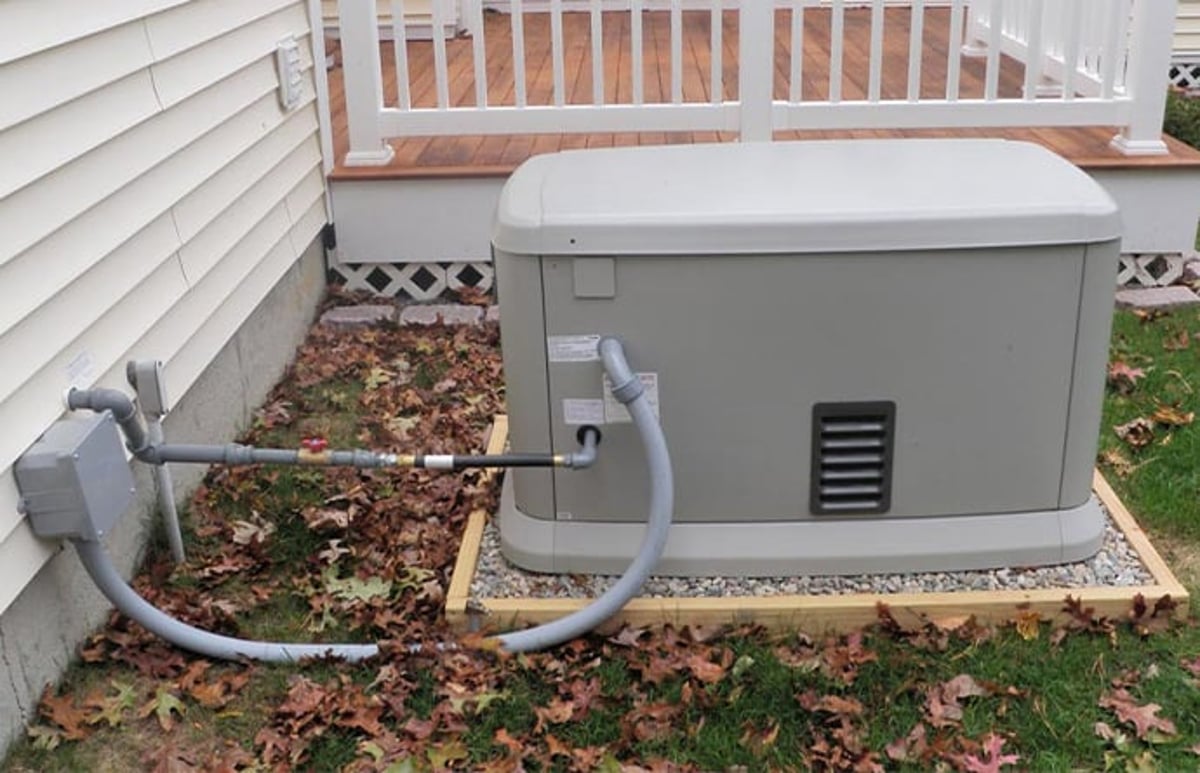The Complete Guide to Generator Cables
This entry was posted on April 12, 2023

How to Find the Perfect Generator Cable
If your customer is experiencing frequent power outages or simply wants an additional power solution for their business or commercial operations, a standby generator is your answer.
But, what size generator do you need? And, what type of generator cable is best?
As these are the frequently asked questions we often get, we’ve decided to create a complete guide to both generator cables and standby generators, which should help answer any of the questions you might have regarding standby generators and their cables.
For any remaining questions you may have about generator cables, we suggest contacting Mars Electric where we can help you find the exact product and service you need to get the job done right.
What is a Standby Generator?
Let’s start with understanding what a standby generator actually is.
A standby generator is a backup electrical power system that operates automatically, providing power to residential properties, as well as commercial or industrial operations in the event of a power outage. These stationary power solutions run off of diesel, natural gas, or liquid propane and in the event of an outage, are triggered by an automatic transfer switch that tells the generator to power on and continue to run until traditional power returns.
Certain building codes, including NEC Article 701.2, require the use of a legally required standby system in order to power a facility when the normal supply of electricity is interrupted. This can include facilities with critical safety systems, such as medical life support equipment in hospitals, fire protection systems, or high-rise elevators.
For residential properties, standby generators provide backup power for systems like HVAC or home security, as well as household appliances like water heaters or stoves.
How to Choose the Right Size Generator
The next step is finding the right generator size.
To do this, we recommend working directly with your customer, making a list of all the household items they require power for and then determining the total require wattage they’ll need to power them. If you need assistance determining wattage, use this formula:
Watt = Amp x Volt
Or
Running Wattage (R) + Starting Wattage (R x 3) = Total Wattage needed
For example, if you have a microwave with a running wattage of 1200, you’d use the formula above to calculate the required generator wattage you’d need to continue powering the appliance.
1200 + 1200(3) = 4800.
Most critical household equipment can be run with a generator that’s rated at 5,000 – 7,500 watts. In the example above, a generator with a 5,000 total wattage is an ideal option as you should pick a generator with an output slightly higher than the total wattage of your equipment. Consult a qualified professional with any questions and to complete the installation.
How to Find the Right Sized Generator Cable
Once you’ve found the generator size you need, it’s time to find the right sized generator cable. As most generators need fairly large wires that can handle the amps, you’ll want to ensure you’re not choosing one that’s too small (as this could lead to issues like a fried circuit).
To know what generator cable or cables you’ll need for your specific generator, you’ll need to first check your generator’s nameplate for the system voltage, as well as the wattage. This will typically look like 120/240V and the wattage range can be anywhere from 1,000W to 10,000W.
Next, you’ll need to do a bit of calculating in order to find the amp draw. We recommend using this formula:
Generator Wattage / Voltage = Amp Draw
For example, if you have a 5,000-watt generator, delivering 120 volts, your amp draw would be 41.6.
5,000W / 120V = 41.6 amps.
Once you have your amps, a good formula for calculating generator cable sizing is taking the amp amount and multiplying it by 1.25 (the 80% NEC rule).
Amps (A) x 1.25 = Wire Ampacity Amount
Using our example above, you’d do: 41.6 x 1.25 = 52
Once you have your wire ampacity amount, it’s time to speak to a wiring and cable expert at Mars who can help you determine what size generator cable you’ll need!
Copper Generator Cable vs. Aluminum Generator Cable
When comparing copper and aluminum cables, the two main differences you’ll need to be aware of are the current carrying capacity and resistance. Aluminum cables are the less expensive option and have a greater resistance, however they do have a lower current carrying capacity.
Copper cables generally have a more stable and durable conductivity, and they will require less space to carry the same amperage and aluminum.
What Type of Generator Cable does Mars Electric Carry?
At Mars Electric, we carry five different sizes of generator cables, including:
Shop for Generator Cables Today at Mars Electric
Stop by Mars Electric today for all your generator cable needs! Our team of experts will help you find exactly what you need right then and there, saving you time, money, and the stress of having to search for yourself.
Since 1952, we’ve been the leading full-service distributor of electrical supplies for the Northeastern Ohio area, and we continue to serve our local and extended community to this day.
For questions on generator cables or to speak to one of our wire, cable, and cord experts, please contact us today!